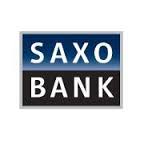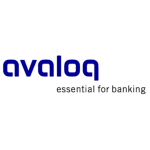Published
- 08:00 am

eBay and PayPal today confirmed the signing of a previously-announced agreement to offer PayPal as a way to pay on eBay until July 2023.
“PayPal has been a great partner for eBay, and as part of our new payments experience PayPal will continue to be a key form of payment for our global customers,” said Devin Wenig, president and CEO, eBay. “We are pleased to continue to offer PayPal as a form of payment on eBay and look forward to a continued, strong partnership with PayPal going forward.”
As previously announced, the new agreement between eBay and PayPal will ensure that PayPal as a form of payment continues to be available to buyers on the eBay marketplace. PayPal as a form of payment includes payments through the PayPal payment button, as well as value-added services such as fraud detection and buyer protections.
“We are proud to have extended our relationship with eBay and our commitment to build on more than 15 years of collaboration and innovation with a great partner,” said Dan Schulman, president and CEO, PayPal. “We are excited to continue to provide our millions of mutual customers with innovative, trusted and seamless PayPal payment experiences.”
PayPal continues to provide a comprehensive payments solution to eBay under the existing Operating Agreement through July 2020.
Related News
- 02:00 am

b-next, the specialist provider of capital markets compliance solutions, will showcase its advances in blockchain surveillance, as well as its latest Artificial Intelligence (AI) and behavioural analytics capabilities at Tradetech 2018.
The collaboration with Whitestream is aimed at tackling crypto-currency fraud and monitoring market abuse on the blockchain. This is achieved by generating alerts on trading frequencies, holding periods and watchlist/restricted lists. A rating engine also helps market participants to identify the most reliable entities on the blockchain. A unique algorithm analyses traffic to map the bitcoin network and find blockchain "safe" areas, protecting participants from market abuse.
b-next’s partnership with Catelas delivers a comprehensive, holistic trade surveillance solution. Its advanced algorithms blend relationship analytics and behavioural science to present compliance officers with an unprecedented view into how business is conducted. The integrated solution helps compliance officers to visualise communications, information barriers, control rooms, watch list networks, and chat rooms, automatically. This helps compliance officers to identify high-level risks quickly.
b-next CEO, Wolfgang Fabisch commented, “b-next is proud to sponsor Tradetech for a second successive year. A lack of regulation or standards leaves the blockchain exposed to fraud. Our blockchain surveillance includes a blockchain rating engine and analysis capabilities which will help protect participants from market abuse. Our AI and behavioural analytics capabilities have also been strengthened through our partnerships with Catelas and Whitestream, enabling b-next to offer a truly holistic surveillance solution.”
Wolfgang Fabisch will be participating in a panel discussion at Tradetech 2018 on day two of the event (Thursday 26th April from 12.50-13.25). The topic for the panel discussion will be: How to monitor your trade data accurately under MiFID II requirements and effectively report market abuse.
b-next’s experts will also be available at booth number 65 during Tradetech 2018, to discuss blockchain surveillance, AI and behavioural analytics.
Related News
- 07:00 am

Microsoft and Saxo Bank announced a strategic partnership with the aim of running Saxo Bank’s entire technology stack on the Microsoft Cloud.
Financial services are at a transformational tipping point. It is key for financial organizations to harness data and cloud services as a strategic asset, shifting from hindsight to foresight closely hinged on security, privacy and regulatory compliance. With the partnership, Saxo Bank aims to be at the forefront of cloud-based solutions in the financial industry.
Saxo Bank is a leading fintech specialist focused on multi-asset trading and investment, servicing clients in more than 170 countries with access to investments in global capital markets and headquartered in Copenhagen, Denmark. Saxo Bank delivers “Banking-as-a-service” allowing other banks and brokers to leverage Saxo Bank’s technology and global capital markets access. Expecting the number and scale of partnerships to grow significantly, Saxo Bank has decided to leverage the Microsoft Cloud to ensure scalability, flexibility and security in the digital infrastructure.
“The future of financial services is cloud based and by partnering with Microsoft we take part in shaping this future. Saxo Bank was a fintech long before the term was created, and it is a natural step for us to also pioneer cloud-based solutions in financial services. By leveraging the Microsoft Cloud, we can spend more time on developing technology and less time on running it, allowing us to continue to stay at the forefront of client focused digitization and support our ambitious growth plans”, said Kim Fournais, founder and CEO, Saxo Bank.
A trusted platform is the foundation for running financial services in the cloud and organizations - like Saxo Bank - who continuously develop to stay at the forefront of technology will become the digital leaders of the future and maintain their competitive edge.
“We are excited to help Saxo Bank shape the future of trading and investment on our cloud platform. Saxo Bank is at the forefront of fintech and our partnership will enable financial service organizations to securely harness data to better serve their clients”, said Judson Althoff, Executive Vice President, Worldwide Commercial Business, Microsoft.
“We are proud to break new ground together with Microsoft and look forward to be working with key stakeholders such as regulators to ensure that cloud solutions continue to evolve and support the high regulatory standards that define the financial industry. At an early stage, we saw opportunities in using the internet and digital solutions to differentiate ourselves. Since we launched one of the first online investment platforms in 1998, we have been a Microsoft house, as such the Microsoft cloud is a natural fit for Saxo Bank”, said Kim Fournais, founder and CEO Saxo Bank.
Today, Saxo Bank supports more than 120 White Label partnerships globally. Through its unique trading and investment technology, Saxo Bank facilitates access to more than 35,000 financial instruments across multiple asset classes.
Related News
- 09:00 am

Segment, the customer data platform, today announced the availability of new product features that will help brands achieve compliance with the European Union's General Data Protection Regulation (GDPR), which takes effect May 25, 2018. Using either a simple user interface or an API, Segment customers will be able to manage user deletion and suppression requests, as well as automatically forward them to supported Segment integrations such as Amplitude, Braze (formerly Appboy), Intercom and Iterable. With these new features, Segment helps its customers meet key end-user rights requests under the GDPR.
"We welcome the GDPR because it sets a new standard for privacy rights, requiring businesses to be more transparent about how they use their customers' personal data," said Peter Reinhardt, co-founder and CEO of Segment. "Segment has always been committed to building a customer data platform that is respectful of user privacy and powered by first-party data. We are dedicated not only to helping our customers achieve GDPR compliance, but also to fostering a partner ecosystem that is privacy-conscious and prioritizes the rights of the individual."
Under the GDPR, consumer rights are strengthened and expanded, and end-user rights requests are likely to increase given the recent widespread interest in consumer privacy. While the GDPR will raise the bar for protecting end-users' rights and privacy, it presents a complex technological challenge for most companies - evidenced by a Gartner estimate that more than 50 percent of companies affected by the GDPR will not be in full compliance by the time the law goes into effect.
Streamline Compliance with GDPR Rights Requests
With Segment, brands will be able to operationalize GDPR rights requests through a new, simple user interface or a new API. Specifically, companies will be able to:
- Issue deletion requests to delete a specified user's data from Segment. Data will be deleted where it is stored on the Segment platform.
- Issue deletion requests to delete user data from supported integrations. Issuing a delete call will also delete a user's data from Amazon Redshift, Amazon S3, Google BigQuery and Postgres.
- Forward user deletion requests to supported integrations. Segment automatically forwards deletion requests to supported integrations, like Amplitude, Braze (formerly Appboy), Intercom and Iterable.
- Suppress data collection for specific users. Add users to a suppression list to restrict user data from being sent to Segment and supported integrations.
- Monitor deletion and suppression status from a user interface. To help with monitoring and auditing rights requests, all user deletion and suppression requests will be documented within Segment.
In addition, Segment's existing functionality already supports:
- Honoring the rights to access and portability. Segment's raw data integrations and warehouses enable companies to compile a complete picture of all data sent to Segment about a user and share it with them in a structured format.
- Rectifying user data. With just a single API call, companies can create or update a user's data inside of Segment and across a company's connected integrations, ensuring a user's data is always up-to-date.
"Amplitude and Segment share a similar mission. We want to help companies build great products, engage their customers and grow their business," said Spenser Skates, CEO of Amplitude. "We are delighted to announce that we have further strengthened this partnership. We are working together to prioritize and simplify user privacy for all."
"Braze (formerly Appboy) is committed to ongoing compliance with the GDPR, serving as good stewards of our clients' data, and promoting seamless data connections between our partners," said Bill Magnuson, CEO and co-founder of Braze (formerly Appboy). "Working in partnership with Segment to streamline and simplify end-user requests helps us to accomplish these goals, while also supporting brands as they work toward compliance with the GDPR."
Related News
- 06:00 am

Avaloq’s Business Process as a Service (BPaaS) solution has been selected by Intesa Sanpaolo Private Banking Suisse to fast-track the integration of legacy systems and new client assets and position the bank for growth. Using Avaloq’s innovative ready-for-business approach, the implementation significantly reduced costs and time-to-market for the bank.
Intesa Sanpaolo Private Bank Suisse is the Lugano-based branch of the Fideuram - Intesa Sanpaolo Private Banking Group, the largest Italian private bank and the fourth biggest in the Eurozone. As at the end of 2017, the group had EUR214 billion in client assets.
Avaloq’s BPaaS solution will enable the bank to accelerate its growth strategy of client acquisition and geographic expansion, as the Private Banking division recently announced an international expansion programme and was looking for a partner to implement a state-of-the-art BPaaS platform within a short period of time.
Avaloq used its tried-and-tested ready-for-business approach to bring Intesa Sanpaolo Private Bank Suisse live in the quickest time possible. This involved using a BPaaS solution based on a fully working, pre-tested standard, including the delivery of new digital channels, which significantly lowered costs and time to market. The inherent flexibility of BPaaS allows for such fast implementation and future adaptability.
Avaloq is the leading provider of BPaaS to financial institutions and is forecasting strong demand for this type of agile, efficient solution as banks and wealth managers increasingly undertake in-depth digitisation projects. BPaaS allows institutions to focus resources on top line growth opportunities such as product innovation, new business models and channel development.
Avaloq recently reported record earnings for 2017 driven by strong demand from a growing list of international clients. Its front and back office solutions as well as its Software as a Service (SaaS) and BPaaS offerings continue to win new customers and deliver significant value for established customers as the digital transformation of the financial services sector, the need for flexible business models and increased automation drive the future of the market.
Tobias Unger, Member of the Group Executive Board and Regional Manager for Switzerland and Liechtenstein, Avaloq, said: “We are delighted to welcome one of the leading banks in Europe to our growing community of customers. The quick implementation of Avaloq’s BPaaS solution is a testament to both the strength and depth of our service suite implementation methodology and, significantly, the increasing role that BPaaS is set to play in the future of the world’s banking and wealth management industry.”
Related News
- 01:00 am

Eagle Investment Systems LLC, a BNY Mellon company and leading provider of financial services technology, announced today that it is collaborating with Microsoft to create a new cloud-based data management platform. Offered through Microsoft Azure, Eagle will work to develop a multi-tenant solution, leveraging 25 years of experience providing data management solutions to global investment institutions, with $24 trillion in assets currently managed on Eagle. The relationship with Microsoft will also build upon Eagle’s secure private cloud, Eagle ACCESS(SM), creating a robust hybrid cloud offering.
Related News
- 09:00 am

Appian and KPMG LLP today announce an expansion of their strategic alliance. Together, the companies are focused on making it easier to realize the business value of artificial intelligence (AI) by combining the KPMG Ignite portfolio of AI services with the speed, features, and intelligent automation (IA) capabilities of Appian's low-code platform. KPMG and Appian will expand their relationship around AI-related applications, and Appian's platform will be leveraged by KPMG Lighthouse, a Center of Excellence for Data & Analytics, to demonstrate application and operational delivery of innovative AI services.
AI technology holds immense promise for smarter decisions, faster action, and smoother business operations in scenarios ranging from frontline customer service to back-office risk management and regulatory compliance. Real-world deployment of AI solutions lags, however, because AI solutions tend to exist in separate silos that are disconnected from operational systems.
Appian and KPMG are working together to bridge this gap, enabling innovative applications of AI and machine learning - ranging from voice analytics, to prediction based on Big Data, to chatbots, and more - to be directly and effortlessly injected in real-time into the applications that run organizations' most essential business processes. Currently, the results of AI are predominantly used as a way to analyze after the fact. Applying the results directly in active processes is key to making the right decision at the right time. Working together, Appian and KPMG will enable better decision-making and a higher level of automation, driving better business outcomes and reduced costs.
According to "The Forrester Wave(TM): Insights Service Providers, Q1 2017" report: "Decision makers are increasingly dissatisfied with the level of analytics in their companies. They realize data alone cannot solve business problems. The ability to provide cutting-edge analytics, deliver insights, and support implementation will dictate which providers lead the pack. Those that turn data into insights that prescribe specific actions to improve outcomes will deliver the most customer value."
KPMG is an insight services leader. The expanded alliance will offer clients the benefit of KPMG Ignite, which includes methods, tools, and approaches that focus on improving the consistency, efficiency, and speed of AI-enabled decisions and actions. These are backed by highly skilled data science resources with experience in building and training AI data models. Appian solves the application development side of the equation through powerful low-code development, including no-code integration to cloud cognitive and machine learning services from leading platform providers. Appian makes it easy to orchestrate people, AI services, and a robotic process automation (RPA) powered workforce to improve the most essential business processes.
"Appian not only provides the digital layer to connect operational systems, it also helps integrate multiple classes of intelligent automation technology with human operations to optimize and expand the business value of our IA solutions," said Bill Cline, Intelligent Automation U.S. Advisory Leader at KPMG LLP. "Appian is an ideal platform to help operationalize advanced AI solutions in a fraction of the time, and we can deliver exceptional client value with this new aspect of our relationship."
Marc Wilson, Senior Vice President, Global Partnerships and Industries at Appian, said, "KPMG is uniquely positioned to help us deliver the benefits of Appian for AI. It has both industry-leading data science and analytics expertise and as a long-time Appian partner, it has deep experience in getting the most out of our platform."
Related News
- 01:00 am

Appian today announced a strategic technology alliance with Genesys, the global leader in omnichannel customer experience and contact center solutions. The partnership will benefit organizations seeking next-generation customer engagement solutions that integrate the case management, intelligent automation, and low-code application development capabilities of Appian with the Genesys Customer Experience Platform.
"Over the last several years, Serco has used Appian technology, alongside Genesys, to deliver contact solutions to its Federal customers, having processed tens of millions of cases across thousands of contact center agents through our systems. We are excited to hear about the tighter technology partnership between Appian and Genesys as it opens up the possibility to deliver more efficient solutions to our Federal customers at a lower cost," said Chris Sullivan, CIO, Serco Inc.
In digital business, customer experience is the source of competitive advantage. Contact center organizations are struggling to keep pace with emerging technologies and ever-rising consumer expectations. Businesses need new strategies for empowering contact center agents with artificial intelligence (AI), robotic process automation (RPA), and other emerging technologies to deliver seamless customer experiences across an ever-broadening scope of communication channels.
"We are excited to more tightly align our capabilities managing the customer experience across any channel with the rapid development and powerful case management of Appian," said Jim Krautler, vice president of the ISV and Technology Alliances for Genesys. "The strength of Appian's case management and low-code capability combined with Genesys' leading omnichannel contact center provides undeniable benefits to joint customers."
According to Gartner, Inc., "from [its] observations and surveys, 85% of customer service centers now have multichannel capabilities, yet most lack any form of advanced customer service case or problem resolution functionality" (Gartner, Inc., "Place Case Management at the Core of the CRM Customer Engagement Center," Michael Moaz, 20 June 2017).
Through its platform, Genesys enables organizations to deliver highly predictive, fully contextual and efficient experiences across every step of the customer journey across marketing, sales and service use cases. This includes real-time contextual journeys, world-class intelligent routing and digital transformation at any scale - from small and medium-sized business to large, multi-site, multinational organizations.
Appian Intelligent Contact Center is a cloud platform for building dynamic customer service case management solutions in a low-code development environment. In addition, Appian Intelligent Contact Center provides a 360-degree view of customer data, industry leading business process management (BPM), robotic process automation capabilities powered by Blue Prism, and AI capabilities to maximize the lifetime value of customer relationships.
"Appian and Genesys have highly complementary technology," said Marc Wilson, Senior Vice President of Global Partnerships & Industries at Appian. "Together, we can improve the contact center experience for customers and employees."
Related News
- 05:00 am

Billtrust, the leader in B2B payment cycle management, today announced the acquisition of Credit2B, a pioneer in trade credit risk. The transaction expands Billtrust’s Quantum solution suite with the addition of business credit reports, online credit applications, machine learning credit scores and credit analytics capabilities.
Credit2B, based in South Plainfield, New Jersey, leverages crowdsourcing and other technologies to provide up-to-date payment behaviors and financial risk information on common customers, easing the credit decisioning process for suppliers. This approach to credit decisioning is unique in the market and provides market leading intelligence for customers across the globe, in a wide variety of industries.
“Acquiring Credit2B allows us to expand the ways in which we can support our current customers while attracting new customers looking for a total, automated B2B payments solution,” said Billtrust CEO and founder, Flint Lane. “By joining our teams, technology and talent, we are able to offer the most comprehensive and cutting-edge A/R solution on the market.”
“We are longtime believers that an end-to-end solution is the best value proposition for our customers,” said Credit2B CEO, Shyarsh Desai. “We are excited to join Billtrust and offer our customers a best-in-class A/R solution suite, while continuing to innovate by delivering smarter credit solutions that provide timely, relevant and actionable information.”
Desai and the Credit2B team are attending Billtrust’s annual customer conference this week in Baltimore, Billtrust Summit, to demonstrate their unique approach to credit risk management. Billtrust customers at the conference will be able to meet members of the Credit2B team and learn more about this exciting addition to Billtrust.
This year, the Summit conference has broken attendance records with more than 120 participating companies. The conference features several sessions around solution enhancements and technology innovations around artificial intelligence (AI) and robotics process automation (RPA). The keynote address will be by Major Dan Rooney – an F-16 fighter pilot with three combat tours in Iraq, a PGA professional, and the founder of the Folds of Honor Foundation, which has raised more than $100 million for families of wounded or fallen soldiers.
Related News
- 04:00 am

Nets, the digital payments specialist, has launched testing of finger vein payments in Denmark. Now, students and visitors at Copenhagen Business School (CBS) can leave their cash, cards and smartphones behind and buy lunch using just their finger.
Paying with your finger is a new, faster and safer way of making payments that works by scanning the structure of veins in customers’ fingers. In collaboration with CBS, Smart Payments and Fingopay, Nets has installed finger scanners at the check-outs in the business school cafeteria. Anyone with a Dankort, the Danish domestic card scheme, can enrol in the system and link the unique pattern of veins in their finger to their account.
Biometrics, the use of biological recognition for identification, is not a new phenomenon. Paying with your finger vein is similar to the biometric capabilities on smartphones that consumers are already comfortable with – and even more secure. Many models of smartphone can now be unlocked, and particular applications accessed, with a fingerprint. Finger vein payments are even more secure than fingerprint biometrics because finger vein patterns are almost impossible to replicate and blood circulation must be detected for the payment to be authenticated.
The payment process is very much like other contactless payments but the increased security creates one key difference – even high-value transactions do not require the extra step of PIN entry.
“The pilot underway at CBS demonstrates how fast payments technology is developing. In 2017 we launched Dankort on the mobile using brand new technology, and now only one year later customers can become their Dankort themselves,” says Jeppe Juul-Andersen, Vice President of the Dankort sector, Nets.
Together with Smart Payments, a specialized independent innovations business founded by Nets, Nets is investigating several different solutions that will reshape the way we pay.
“Your means of payment may not be made of plastic in the future, as apps and infrastructures which enable consumers to pay using biometric identifiers are developed. We are excited to see how card holders find the finger vein payment experience. If they react positively, we will consider launching pilot schemes in other Nordic countries as well,” adds Juul-Andersen.
Finger vein payments are as secure as purchases made with the physical Dankort. Users can unlink the finger scanning function from their Dankort at any time if they no longer wish to make use of the technology.









